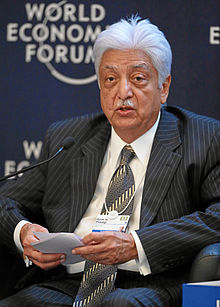
In economics there is this concept called the diminishing marginal rate of utility. While the term sounds pretty complicated, the concept isn’t.
As James Kwak writes in Economism—Bad Economics and the Rise of Inequality: “People generally gain utility by having more stuff—more food, more clothes, more toys—or at least people behave that way. But the more you have of a particular thing, the less you benefit from getting even more of it.”
A good example of diminishing marginal utility is a comparison between two individuals making an extra Rs 10 lakh, during the course of a year. In the first individual’s case his salary doubles from Rs 5 lakh to Rs 10 lakh. In the second individual’s case, the salary increases by 5 per cent from Rs 1 crore to Rs 1.05 crore.
While the Rs 5 lakh increase in the second case might seem like small change, in the first case it is clearly a lot of money. And this is the basic point behind diminishing marginal utility—as you have more and more of something, the less it matters.
As Kwak writes: “This concept applies to most things—think about eating five pieces of pizza in a row—but in particular it applies to overall wealth: an increase in your net worth from $1 million to $1.1 million will never be as significant as going from $0 to $100,000.”
The point being that as overall wealth goes up, it matters less and less, or at least it should matter less and less to the person earning it. And if that is the case we should see more and more rich donate their wealth to noble causes. But that is clearly not the case in India, Azim Premji notwithstanding.
A simple reason for this could lie in the fact that income and wealth are ways through which the wealthy “keep score in a long-running competition with each other”. The other major reason may lie in the fact that in India people like to leave their wealth to their families. And that to an extent explains why any mention of inheritance tax in the country gets hugely negative reactions. Further, that may also be a reason as to why the rich don’t donate even a fraction of their wealth.
The second reason needs to be elaborated on. Typically, it’s the businessmen who tend to be rich and have more money than others. While, the first generation builds the business, in most cases, the second and the third generation are not able to do much with it, though there are always examples in which case the second generation does better.
Gurcharan Das in his book India Unbound talks about a book titled Buddenbrooks written by Thomas Mann. He calls it the best book ever written on family businesses. As he writes about the book: “It describes the saga of three generations: in the first generation the scruffy and astute patriarch works hard and makes money. Born into money, the second generation does not want more money. It wants power… Born into money and power, the third generation dedicates itself to art. So the aesthetic but physically weak grandson plays music. There is no one to look after the business and it is the end of the Buddenbrook family.”
How is this linked with the rich not donating their money? At some level, the individual starting and running a business knows that his company may not survive the test of time, when he is no longer there to run it. His progeny may not have the same instinct or for that matter inclination towards business.
Hence, it is important for him to ensure that the wealth that he has built up through his business over a period of time, continues to remain with the family, so that the coming generations can continue to have a good and a comfortable lifestyle. And that is only possible if the wealth is not donated away and continues to remain in the family.
The column originally appeared in Bangalore Mirror on April 19, 2017